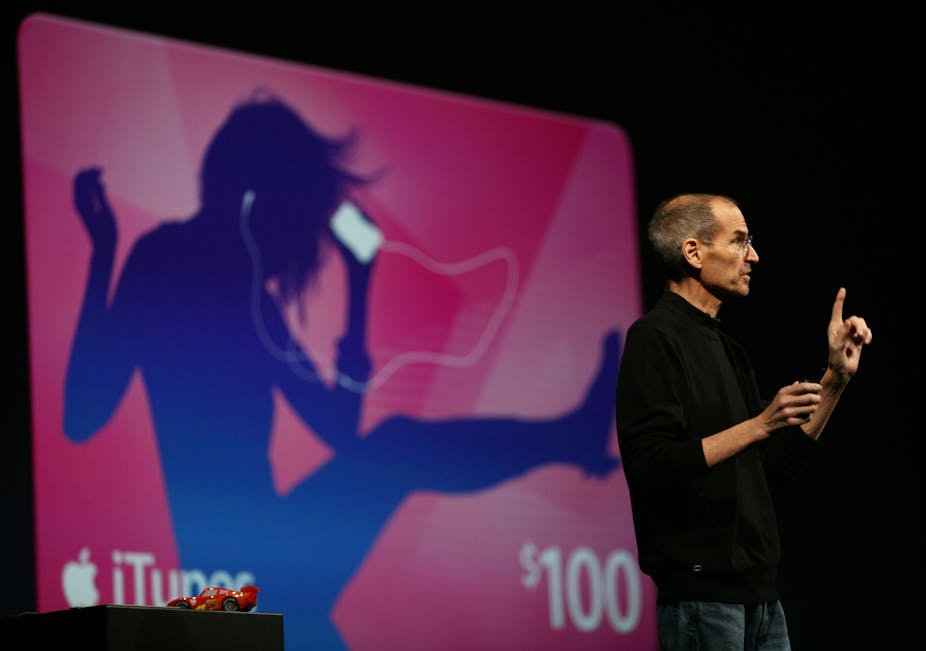Was Steve Jobs’announcement of the Apple iCloud yesterday music to your ears?
It certainly takes cloud computing a significant distance further along the path of integration.
All your devices – PC, iPad, iPhone and others – will be automatically synched to each other and to your file store in the iCloud.
Mobile devices are converging with laptops and desktops. There’s no more looking under the hood. Indeed, it’s harder to find if there’s a hood at all.
There are no more cables. Wherever you are in WiFi range, your devices will work with integrated information, apps and resources. No more manual synching things from one to the other.
And that holds for music, photos, apps, calendar, documents and email, ibooks and more.
Apple’s most surprising innovation, however, concerns your music. The iCloud checks the music on your hard disk. Whether or not it’s on your iTunes list of purchases, iTunes will give you access to a legal copy for $25 a year.
It’s quite possible that some of your music files will be copied from legal CDs that you have bought – remember buying CDs? iTunes doesn’t care.
If it’s on your disk, and if iTunes has a copy among its 18 million songs, you get legal rights. $25 a year is peanuts for you. It’s also better than nothing for the big music companies, who get 70% of the $25.
We haven’t seen a business model yet, but it could well be a fair compromise compared to no income from pirated copies.
Enter Long John iCloud Silver. He copies all his friends’ pirated copies of songs and mounts them on his hard drive. iTunes authenticates the lot. He’s now legal.
It’s not difficult to see how this kind of strategy could lead to the laundering of huge volumes of pirated music.
Someone must have done the arithmetic to show that this leaves the music companies at least as well off as they are now. At first glance, though, Long John is going to do rather well, so long as he remembers to pay his $25 a year.
If he’s late, he can listen only to his legally purchased iTunes tracks. Perhaps it’s not such a bad deal after all for the music companies.
There are other wrinkles, though, which are yet to be ironed out. What if one of your devices is stolen, and all your music is accessible to some nefarious iPad pickpocket?
The iCloud is still a big work in progress. But it’s also one of the obvious ways of the future.
Interesting article? Engage with The Conversation: leave your comments below.

